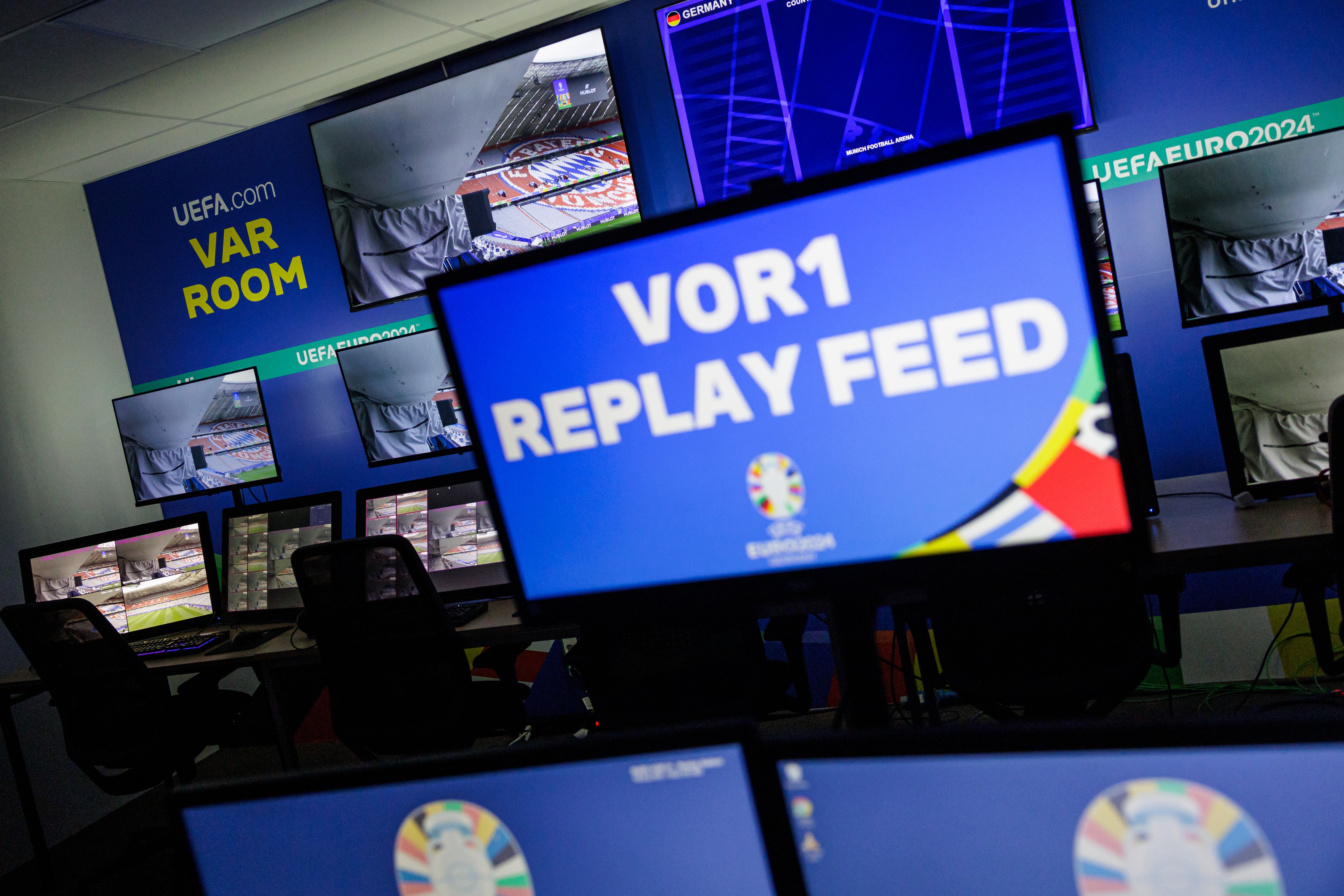Is VAR at Euro 2024? ‘Snicko’, semi-automated offsides and technology explained
The system was used at the 2022 World Cup in Qatar and now Uefa has adopted it for the first time at a European Championship
Your support helps us to tell the story
From reproductive rights to climate change to Big Tech, The Independent is on the ground when the story is developing. Whether it's investigating the financials of Elon Musk's pro-Trump PAC or producing our latest documentary, 'The A Word', which shines a light on the American women fighting for reproductive rights, we know how important it is to parse out the facts from the messaging.
At such a critical moment in US history, we need reporters on the ground. Your donation allows us to keep sending journalists to speak to both sides of the story.
The Independent is trusted by Americans across the entire political spectrum. And unlike many other quality news outlets, we choose not to lock Americans out of our reporting and analysis with paywalls. We believe quality journalism should be available to everyone, paid for by those who can afford it.
Your support makes all the difference.VAR will be in operation at Euro 2024 in Germany with semi-automated offside technology in use.
Uefa will also utilise goal-line technology, with connected ball technology in play for the first time at a European Championship, starting with hosts Germany’s opening fixture against Scotland in Munich.
Here’s everything we know about the technology being used at Euro 2024:
How will VAR work at Euro 2024?
A Video Assistant Referee (VAR), two Assistant Video Assistant Referees (AVAR) and three video operators will be used at all Euro 2024 games.
The VAR team will constantly check incidents during games for clear and obvious errors related to:
- Goals
- Incidents in the penalty area
- Red cards
- Mistaken identity
Uefa insists the VAR teams will only intervene for clear and obvious errors, but the referee is able to hold up play while an incident is reviewed.
Clear evidence of a serious mistake in a game-changing situation is required for VAR to suggest that the referee conducts an on-field review, with the on-field official making the final decision.
VAR can consider anything in the immediate build-up to the incident, defined as the attacking phase of play.

VAR can inform the referee of ‘factual’ decisions (such as offsides and fouls in or outside the penalty area), with the on-field view screen not needed.
Stadiums will be able to inform fans with information surrounding the reviews on screens.
Connected ball technology
The official Euro 2024 match ball, by Adidas, includes connected ball technology, which sends precise ball data to VAR officials in real time.
Player position data with AI is used, with Uefa claiming the technology will see faster decisions from officials in games.
VAR officials will also be better informed to identify every individual touch of the ball, with handball and penalty incidents also quicker.
After witnessing its use, fans have compared it to ‘snicko’ and the technology used in cricket over the years.

Semi-automated offside technology
The Premier League has announced they will also use semi-automated offside technology (SAOT) from the 2024/25 season onwards.
SAOT will be supported by 10 specialised cameras in Euro 2024 stadiums, including 29 body points tracked for every player.
The system works together with the connected ball technology to identify the first point of contact with the ball from the player who makes the pass during offside situations.
The technology is already in use for Champions League and Serie A matches, with the Fifa World Cup in Qatar also effectively using the technology.
Goal-line technology (GLT)
Goal-line technology (GLT) is also part of Uefa’s arsenal of technology, with seven cameras per goal and control software to pinpoint the ball’s position in the goal area.
Goal-line technology will automatically alert officials if a goal was scored after one second, with a vibration and visual signal on the match official’s watch.


Join our commenting forum
Join thought-provoking conversations, follow other Independent readers and see their replies
Comments